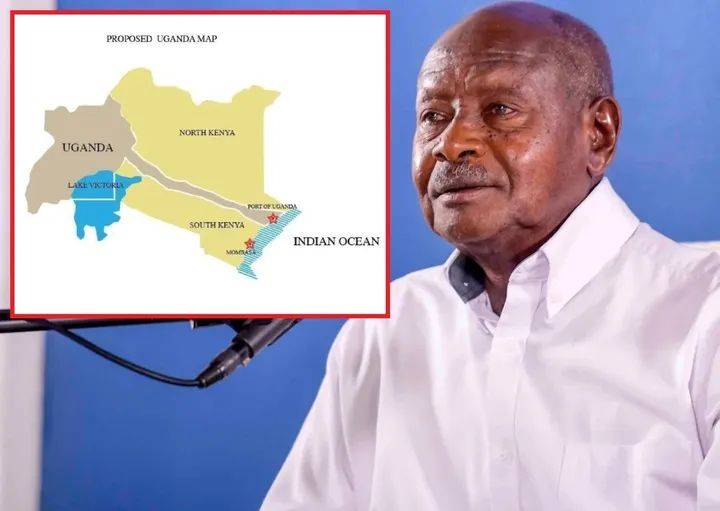A renewed debate over Africa’s fragmented access to the Indian Ocean has surfaced after public remarks by the President of Uganda, who reiterated that true continental integration requires African nations to share the strategic resources of the ocean equitably. His comments have revived long-standing calls for a United States of Africa—an integrated bloc where no state remains landlocked because of colonial-era borders.
The president’s position reflects a growing sentiment among Pan-African thinkers: that access to coastlines is not merely geographical but fundamental to security, trade, and development. Under current arrangements, 16 African countries remain without direct access to the sea.
The imbalance is stark. Madagascar alone commands approximately 4,828 km of coastline, the longest on the continent. Somalia follows with more than 3,300 km along the Indian Ocean and the Gulf of Aden. Together, the two nations possess more than 8,100 km of coastline longer than what all landlocked African states would require even if access were evenly distributed.
Analysts argue that several African states possess more coastline than they can effectively utilize, while landlocked nations continue to face steep economic and geopolitical disadvantages. Advocates of continental reform say that shared maritime access would strengthen Africa’s collective bargaining power, improve trade routes, and enhance security cooperation.
Proponents insist that only a renewed Pan-African renaissance can deliver such reforms, urging African leaders to rise above national silos and embrace a model where the continent’s resources, including its vast coastlines, are managed for the benefit of all.


